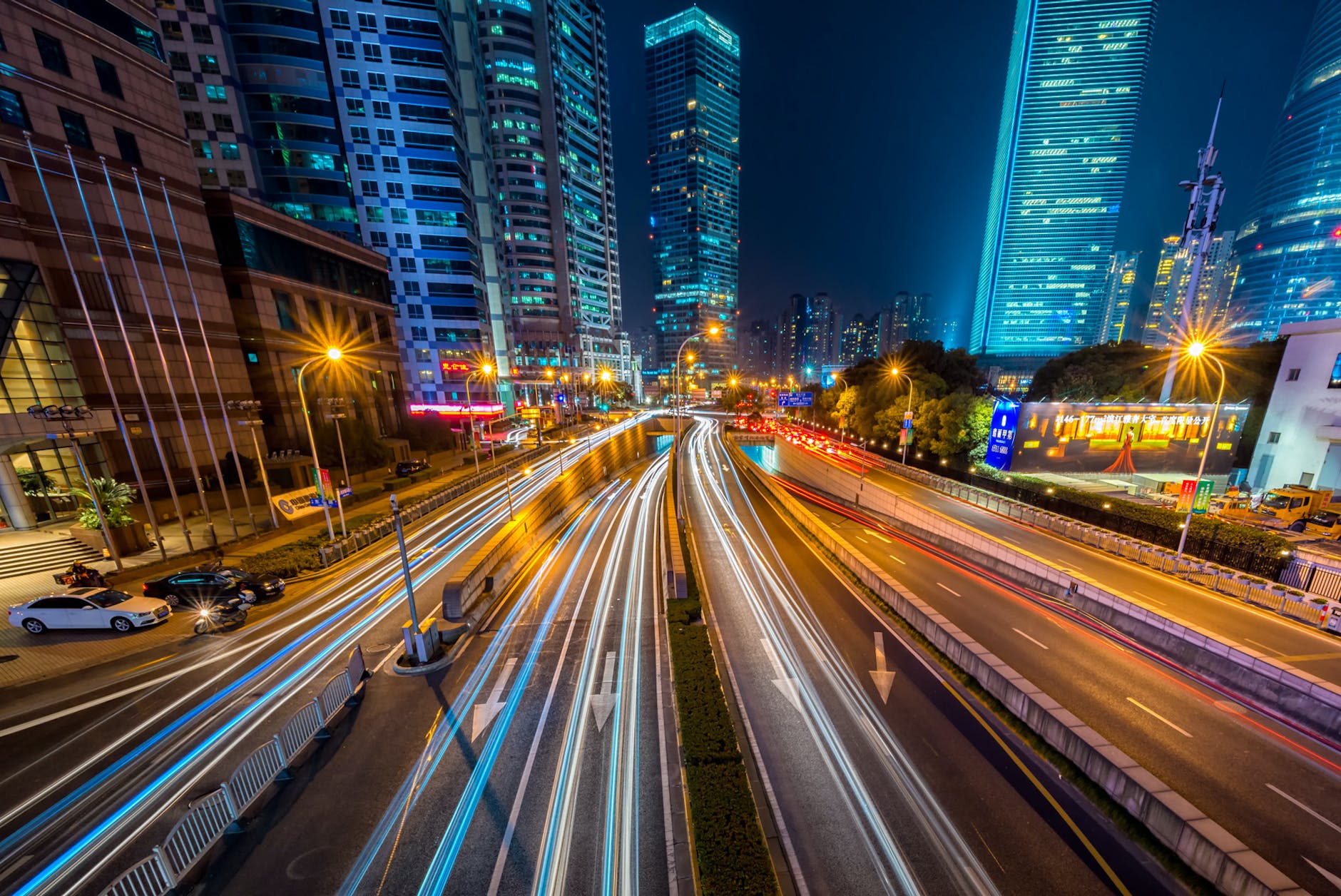As we move further into the 21st century, our world is becoming increasingly urbanized. By 2050, it is estimated that 68% of the global population will live in cities, up from 55% today. This rapid growth presents numerous challenges but also opportunities for innovation and progress. In this article, we will explore the concept of “cities of the future” and how smart city innovations are helping to shape a more sustainable, efficient, and equitable urban environment.
Cities of the future are not just about skyscrapers and flying cars but rather about the integration of technology and data-driven solutions that improve the lives of their residents and promote sustainable development. From smart grids and advanced transportation systems to intelligent waste management and green buildings, these innovations are transforming the way cities function and how we interact with them.
As we delve deeper into this fascinating topic, we will look at the key components of a smart city, the role of technology in shaping cities of the future, and examples of successful smart city initiatives from around the world. We will also discuss the challenges and opportunities that lie ahead, as well as the future trends that will define the next generation of urban development.
Defining Smart City Innovations
Before we explore the myriad aspects of smart city innovations, it is important to define what exactly we mean by the term “smart city.” At its core, a smart city is an urban area that uses technology and data-driven solutions to improve the quality of life for its residents, enhance the efficiency of urban services, and promote sustainability and economic development.
Smart city innovations encompass a wide range of technologies and strategies, from big data analytics and the Internet of Things (IoT) to artificial intelligence (AI) and renewable energy. These innovations can be applied to virtually every aspect of urban life, including transportation, energy management, waste management, public safety, and more.
The ultimate goal of smart city innovations is to create cities of the future that are more livable, resilient, and sustainable than their present-day counterparts. By leveraging cutting-edge technology and harnessing the power of data, we can build urban environments that are not only more efficient and environmentally friendly but also more inclusive and responsive to the needs of their diverse populations.
Key Components of a Smart City
There are several key components that make up a smart city, each of which plays a critical role in creating a more efficient, sustainable, and livable urban environment. These components can be grouped into three main categories: technology and connectivity, infrastructure and services, and governance and policy.
Technology and Connectivity
A smart city’s foundation is built on a robust technological infrastructure that enables the collection, analysis, and sharing of data across various systems and platforms. This includes advanced communication networks, such as broadband and wireless connectivity, as well as IoT devices and sensors that gather real-time data on everything from traffic patterns to air quality.
Infrastructure and Services
Smart city innovations also involve the deployment of intelligent infrastructure and services that enhance the efficiency and sustainability of urban systems. This includes smart grids, which optimize energy distribution and consumption, and intelligent transportation systems that reduce congestion and improve public transit. Other examples include smart water networks that monitor and manage water resources and waste management systems that use data to optimize collection and recycling processes.
Governance and Policy
The third key component of a smart city is effective governance and policy that support the implementation of smart city initiatives and ensure that they benefit all residents. This includes the development of comprehensive urban plans, the establishment of public-private partnerships to facilitate innovation and the creation of regulatory frameworks that promote the widespread adoption of smart city technologies.
The Role of Technology in Cities of the Future
Technology is undoubtedly at the heart of cities of the future, driving the development of innovative solutions that address the complex challenges of urbanization. One of the most significant technological trends shaping the future of cities is the Internet of Things (IoT), which refers to the vast network of connected devices and sensors that collect and exchange data.
IoT technology enables cities to become smarter and more efficient, as it allows for the real-time monitoring and management of urban systems. For example, sensors placed throughout a city can measure traffic flow, air quality, and energy consumption, providing valuable data that can be used to optimize these systems and reduce their environmental impact.
Another important technology influencing the development of cities of the future is artificial intelligence (AI). AI has the potential to revolutionize urban planning and decision-making by providing advanced analytics and predictive capabilities. This means that cities can use AI to identify patterns and trends in data, allowing them to make more informed decisions about how to allocate resources and implement new policies.
“Smart cities illuminate the path to a sustainable, efficient, and connected future, where innovation fosters harmony between people, nature, and technology.” #SmartCities #Innovation #SustainableLiving
Additionally, the rise of renewable energy and smart grid technology is playing a crucial role in the transition to more sustainable cities of the future. By integrating renewable energy sources such as solar and wind power into the urban energy mix, cities can reduce their reliance on fossil fuels and lower their greenhouse gas emissions. Smart grids, which use advanced communication networks and data analytics to optimize energy distribution and consumption, further enhance the sustainability of urban energy systems.
Sustainable Urban Development in Smart Cities
As the world’s population continues to grow and urbanize, the need for sustainable urban development has never been more pressing. Smart city innovations are playing a key role in promoting sustainability by addressing critical issues such as energy consumption, waste management, and transportation.
Smart City Infrastructure and Services
In order to foster sustainable urban development, smart cities are investing in intelligent infrastructure and services that enhance the efficiency and eco-friendliness of urban systems. One example of this is the deployment of smart grids, which use advanced communication networks and data analytics to optimize energy distribution and consumption. By allowing utilities to monitor and manage the flow of electricity in real-time, smart grids can reduce energy waste and promote the integration of renewable energy sources.
From Traditional to Modern: The Unavoidable Shift to Digital Business Transformation
Smart Mobility and Transportation
Another critical aspect of sustainable urban development is the promotion of smart mobility and transportation solutions. Cities of the future are utilizing technology to create more efficient and environmentally friendly transportation systems, which can help to reduce congestion, improve air quality, and decrease greenhouse gas emissions. Examples of smart mobility innovations include intelligent traffic management systems, which use real-time data to optimize traffic flow, and connected public transit networks that provide real-time information on schedules and delays.
Smart Energy and Resource Management
Smart city innovations are also helping to promote more efficient and sustainable energy and resource management. By leveraging IoT devices and sensors to monitor and manage energy consumption, cities can reduce waste and promote energy conservation. Similarly, smart water networks can help to optimize water use and minimize waste by tracking usage and identifying leaks in real time.

Security and Privacy in Cities of the Future
As cities become more connected and data-driven, concerns about security and privacy are becoming increasingly important. Protecting sensitive information and ensuring the privacy of citizens is a key challenge for cities of the future, as they must balance the benefits of data-driven solutions with the need to safeguard personal information.
One approach to addressing this challenge is through the use of advanced cybersecurity measures, such as encryption, secure networks, and threat detection systems. By investing in robust cybersecurity infrastructure, cities can protect their data and networks from potential cyber-attacks and ensure the privacy of their residents.
Another important aspect of security and privacy in cities of the future is the development of clear and comprehensive policies and regulations that govern the collection, use, and sharing of data. By establishing strong legal frameworks and oversight mechanisms, cities can ensure that data is used responsibly and transparently and that citizens have control over their personal information.
Case Studies: Successful Smart City Initiatives
Around the world, numerous cities are embracing smart city innovations and working to become cities of the future. Here are a few examples of successful smart city initiatives that demonstrate the potential of these technologies and strategies:
Barcelona, Spain
Barcelona is widely regarded as a global leader in smart city innovation, thanks to its ambitious “Barcelona Smart City” program. The city has implemented numerous initiatives aimed at improving sustainability, mobility, and quality of life for its residents, including:
- Smart transportation systems, such as the “Superblocks” program, which limits traffic in certain areas to prioritize pedestrians and cyclists
- Smart lighting systems that use LED technology to reduce energy consumption and improve safety
- A smart waste management system that uses sensors to monitor waste levels and optimize collection routes
The city has also launched a number of open data initiatives, which enable citizens and businesses to access and use city data to develop their own innovative solutions.

Singapore
Singapore is another city that has made significant strides in becoming a smart city. The city-state has implemented a range of initiatives aimed at improving sustainability and livability, including:
- A smart transportation system that uses real-time data to optimize traffic flow and reduce congestion
- An intelligent waste management system that uses sensors and analytics to optimize collection and recycling processes
- A smart water management system that uses sensors and data analytics to monitor and manage water resources
Singapore has also launched a number of initiatives aimed at fostering innovation and entrepreneurship, such as the “Smart Nation” initiative, which aims to transform Singapore into a leading hub for technology and innovation.
Songdo, South Korea
Songdo is a new city built from scratch with smart city technologies and innovations. The city was designed to be a sustainable, eco-friendly urban environment that would be attractive to both residents and businesses. Some of the smart city innovations deployed in Songdo include:
- An intelligent transportation system that uses real-time data to optimize traffic flow and provide real-time information to drivers
- An advanced waste management system that uses pneumatic tubes to transport waste to a central processing facility
- A smart energy management system that uses renewable energy sources such as solar and wind power to reduce greenhouse gas emissions
These are just a few examples of successful smart city initiatives that are transforming urban environments around the world. By leveraging technology and data-driven solutions, cities are becoming more efficient, sustainable, and livable and are providing a better quality of life for their residents.
Navigating the Crypto World: A Comprehensive Comparison of Proof of Stake vs Proof of Work
Challenges and Opportunities for Smart City Innovations
While smart city innovations offer tremendous potential for improving urban environments, they also present significant challenges and opportunities. Some of the key challenges include:
Digital Divide
One of the biggest challenges facing smart city initiatives is the digital divide, which refers to the gap between those with access to technology and those without. In order to ensure that smart city innovations benefit all citizens, it is critical to address this divide and provide equitable access to technology and data-driven solutions.
Privacy and Security
As mentioned earlier, privacy and security are major concerns in the development of smart cities. It is important to establish clear policies and regulations that safeguard citizen data and ensure that it is used responsibly and transparently.
Funding and Investment
Smart city initiatives require significant funding and investment in order to be successful. This can be a challenge for cities that are already facing budget constraints and other financial pressures.
Despite these challenges, there are also significant opportunities for smart city innovations. These include:
Economic Development
Smart city initiatives can drive economic development by attracting businesses and creating new jobs. By promoting innovation and entrepreneurship, cities can become hubs for technology and innovation, which in turn can drive economic growth.
Sustainability and Resilience
Smart city innovations offer tremendous potential for promoting sustainability and resilience in urban environments. By reducing energy consumption, promoting renewable energy, and optimizing urban systems, cities can become more eco-friendly and resilient to climate change.
The Timeless Narrative of Rome: A Deep Dive into the Undeniable Facts about Ancient Rome
Future Trends in Smart City Development
Looking ahead, there are several trends that are likely to shape the future of smart city development. These include:

5G Networks
The rollout of 5G networks is expected to have a significant impact on smart city development, as it will enable faster and more reliable communication between devices and systems. This will make it possible to implement more advanced and complex smart city solutions.
Autonomous Vehicles
The development of autonomous vehicles is also expected to have a significant impact on smart city development. Self-driving cars and trucks will revolutionize transportation and logistics, reducing congestion, improving safety, and lowering emissions.
Artificial Intelligence
As mentioned earlier, AI is already playing a significant role in smart city development, and this trend is expected to continue in the years ahead. As AI technology advances, it will become increasingly powerful and versatile, enabling cities to make more informed decisions and optimize urban systems more effectively.
Conclusion
In conclusion, cities of the future are rapidly evolving, thanks to the implementation of smart city innovations. By leveraging technology and data-driven solutions, cities are becoming more efficient, sustainable, and livable and are providing a better quality of life for their residents. However, there are also significant challenges that must be addressed, such as the digital divide, privacy and security concerns, and funding and investment. By working together, governments, businesses, and citizens can create cities of the future that are truly smart, sustainable, and equitable.
Reasons Why the City of Vancouver BC Outranks Every Other City in the World





